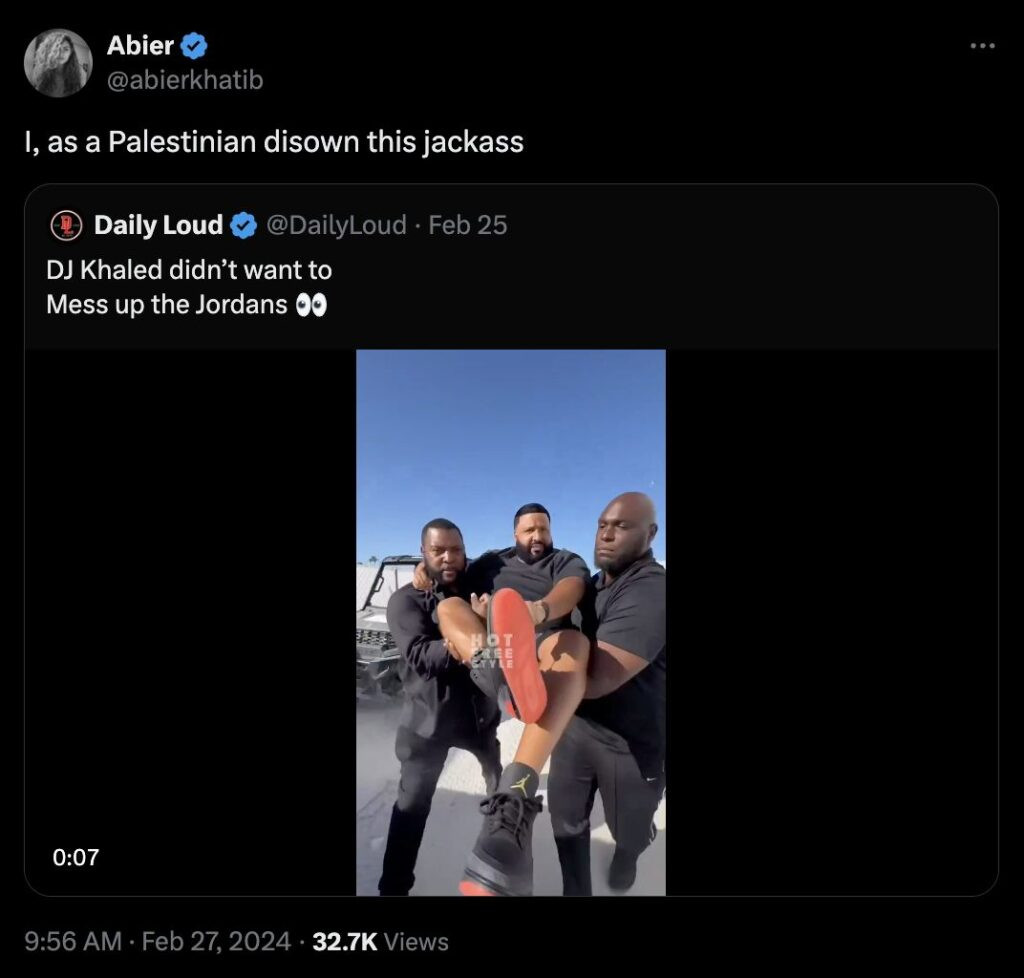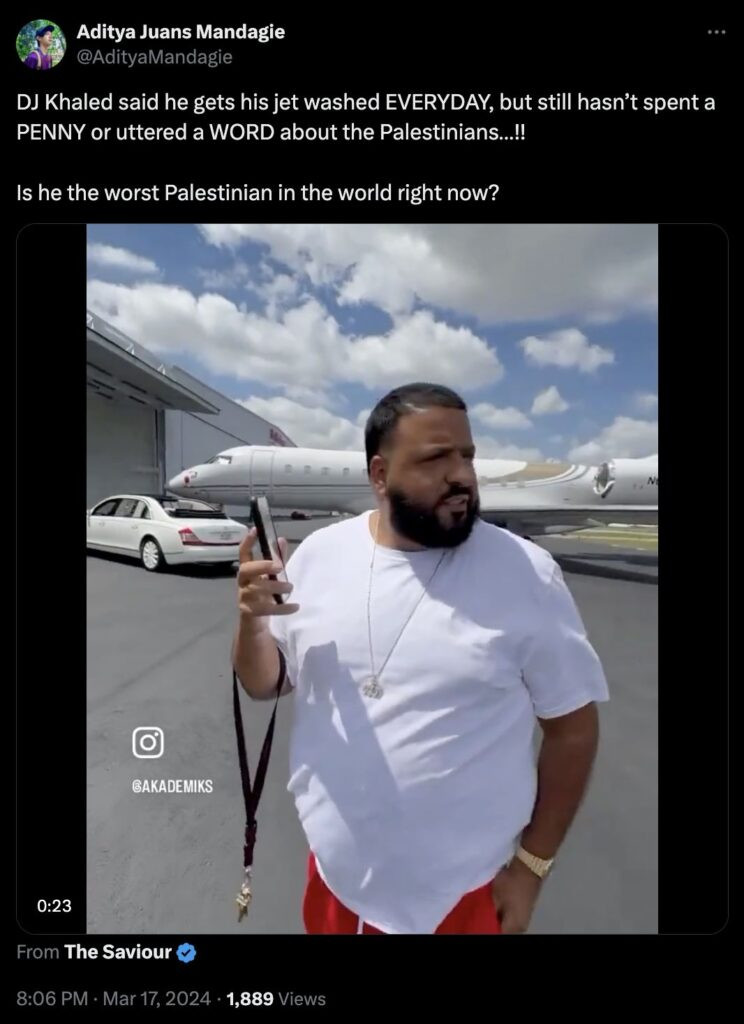For young Palestinians growing up in the diaspora, a crucial step in developing admiration for any public figure involves a simple Google search: “[Celebrity Name] Palestine.” This reflex, ingrained from a young age, stems from the understanding that being Palestinian carries an inherent political weight, a reality distinct from many other identities. Even as an adolescent, the underlying question was clear: would this celebrity accept me, or subscribe to the pervasive notion that Palestinians are somehow invisible?
In those rare instances where a celebrity openly voiced support for Palestine, they were instantly elevated to hero status. These figures transcended mere allies; they became symbols. Their supportive words – echoing Diego Maradona’s “In my heart, I’m a Palestinian” or Anthony Bourdain’s poignant observation, “Today, nearly everything is made in China. Except for courage. Courage is made in Palestine” – transformed into cherished mantras, shared and preserved within Arab families’ digital circles worldwide.
This fervent idolization arises from the awareness that standing in solidarity with Palestine often comes at a personal cost. From Marc Lamont Hill’s dismissal from CNN for advocating “a free Palestine from the river to the sea,” to Susan Sarandon’s recent agency ousting for similar sentiments, Western media has consistently sent a clear message: public support for Palestine can be detrimental to one’s career and reputation. While these sacrifices pale in comparison to the unimaginable losses endured by those in Gaza – lives, limbs, homes, families – the issue of celebrity solidarity remains a significant point of public discourse in Western societies. It permeates university campuses, dominates social media feeds, and even surfaces at prestigious events like the Academy Awards.
Historically marginalized in mainstream media, Palestinians have had limited representation to champion their cause. Before the recent push for diverse representation, there were few Palestinian household names to break through, with the notable exceptions of figures like Mo Amer and the Hadid sisters. For many years, there was essentially one prominent Palestinian figure who consistently held a place in the global spotlight: DJ Khaled.
Remarkably, DJ Khaled has maintained mainstream relevance for nearly two decades, particularly in the Southern United States. His early hits alongside artists like Akon and T-Pain in 2007, such as “All I Do Is Win” and “We Takin’ Over,” are still recognized today. Over time, his collaborations have only escalated in prestige, featuring A-list artists like Rihanna, Justin Bieber, Jay-Z, and Beyoncé – with whom he is often seen socializing at exclusive, high-profile events.
For me, and countless other young Palestinian-Americans hailing from Mazraa al-Sharqiya in the West Bank, DJ Khaled represented a tangible link to our ancestral village. Seeing Khaled mention our hometown in interviews or videos, no matter how brief, sparked a genuine sense of excitement. Any form of representation was deeply valued, especially coming from someone with shared roots. This appreciation often led us to overlook aspects of his persona that could be perceived as cringeworthy – his booming voice, his meme-able “motivational” pronouncements, and his signature catchphrases – embracing him as one of our own, much like any member of our close-knit community. Yet, this man, whose voice is amplified globally, has become conspicuously silent on a matter deeply affecting his people.
Since October, social media has been inundated with harrowing footage from Gaza, alongside visuals of massive global protests against the ongoing bombardment. Individuals previously unfamiliar with the complexities of the Palestinian occupation have dedicated their platforms to disseminating information and raising awareness. Amidst this widespread advocacy, DJ Khaled’s conspicuous silence has generated frustration and disappointment within his community.
 DJ Khaled in a black jacket being carried by security guards, highlighting the controversy around his perceived detachment.
DJ Khaled in a black jacket being carried by security guards, highlighting the controversy around his perceived detachment.
The tipping point for many was a widely circulated video depicting Khaled being carried by his security detail, reportedly to protect his pristine, limited-edition Air Jordans from getting soiled. This incident ignited a wave of social media backlash, with some users expressing their “disownment” of him as a Palestinian. Adding to the negative perception, another video surfaced showing Khaled instructing an employee to clean his private jet daily for “nonstop gloss,” contrasting sharply with the dire conditions faced by displaced Palestinians in Gaza, struggling for basic necessities like clean water and shelter. “Tone-deaf” seems an understatement to describe Khaled’s recent actions in this context.
 A side profile shot of DJ Khaled in a blue jacket, emphasizing his silence and the questions surrounding his stance.
A side profile shot of DJ Khaled in a blue jacket, emphasizing his silence and the questions surrounding his stance.
This silence has not gone unnoticed beyond Arab and Palestinian circles. With prominent figures like Billie Eilish publicly showing solidarity with Palestine, many within the entertainment industry are questioning what factors might be inhibiting Khaled. Is it the influence of his label, We the Best, under Universal Music Group, whose executives include staunch supporters of Israel like Haim Saban? Or is it a calculated decision to avoid association with a contentious issue, fearing potential repercussions for his career and image?
Comedian D.L. Hughley publicly criticized Khaled, pointedly referencing the Air Jordans video. “We’re used to Palestinians being carried. They’re just not alive. They’re dead and they don’t have shoes, they don’t even have feet,” Hughley stated, addressing Khaled directly. He continued, suggesting Khaled had transformed “from DJ Khaled to DJ Callous,” emphasizing the disconnect between Khaled’s opulent displays and the suffering of Palestinians. Arabic-speaking online communities have adopted a harsher nickname: DJ Khara, using an Arabic slang term meaning “shit.”
Khaled’s silence serves as a stark reminder of the challenges public figures face when addressing the Palestinian issue, and how wealth and status can erode core aspects of one’s identity. It is perhaps both naive and misguided to place excessive expectation on celebrities to be vocal advocates. The more pertinent question shifts from “Where is DJ Khaled?” to “Do Palestinians truly need his voice?”
From his “Allah” chain to his public enjoyment of hookah and his hit song “Arab Money,” DJ Khaled has strategically leveraged his Arab identity to distinguish himself within the competitive rap and hip-hop industry. He has consistently made his Palestinian heritage known, whether through interviews, sending a Palestinian dabke group to Drake’s birthday, or sharing Instagram stories featuring Palestinian cuisine like maklouba and knafeh. Interspersed with these cultural displays, Khaled showcases his lavish lifestyle – his Miami mansion, personal chef, and interactions with influential figures in the music industry and beyond.
However, despite these outward displays of Palestinian identity, Khaled has largely avoided political engagement concerning Palestine. In a 2021 interview with British GQ, Khaled described his feelings about being the most famous Palestinian American, stating, “It’s incredible, because, you know, that’s what I represent: love, positivity, family, peace, happiness, prosperity, progress. I mean, just to be able to say that I’m American Palestinian, that’s so beautiful.”
While raised in Florida, DJ Khaled’s birthplace is New Orleans, Louisiana, home to a significant Palestinian community, many originating from Mazraa al-Sharqiya. Mazraa is unlike Palestinian villages known for active resistance, like Nablus or Jenin refugee camp; it is characterized by a high percentage of Palestinian-American dual citizens. Recently, however, Mazraa gained unwanted attention when 17-year-old Palestinian-American Tawfiq Ajak was fatally shot by a settler. His father, Hafiz, had relocated the family to Palestine just months prior, hoping to immerse them in their heritage – language, history, and customs. The family had previously resided in New Orleans, the same community where DJ Khaled was born and where many of his relatives still live. Yet, DJ Khaled remained silent even after this tragic event impacting his community.
Palestinians from Mazraa, including members of Khaled’s own family, have joined the chorus of voices “canceling” him. In an interview, Khaled’s cousin, DJ Fadie, revealed he had severed ties with Khaled due to his silence: “There’s no excuse when you’re actually a Palestinian. My mother lives there, we’re from the same village, same family. There’s no excuse.”
While some continue to hope for Khaled to eventually speak out, many have resigned themselves to his silence, advocating for his irrelevance. Palestinian-American rapper Anees, in a viral TikTok video, asserted that Palestinians no longer need DJ Khaled to speak up. “We’re mainstream, habibi. White kids on TikTok are posting about it. Everybody is talking about Palestinian liberation and the decolonization of Palestine. We don’t need DJ Khaled to speak up anymore.”
Anees’ assertion has proven true. Khaled’s continued silence has not impeded the growing pro-Palestinian movement. This raises crucial questions: Do Palestinians require someone who struggles to pronounce “baklava” to represent them in the West? Is it a productive use of energy for the diaspora, already emotionally drained by months of witnessing immense suffering, to implore DJ Khaled to act?
The limitations of pressured celebrity activism were evident in the unsettling AI-generated-like video of Mo Salah robotically “pleading” for aid to Gaza. Despite calls from the international Muslim community for Salah to address the crisis, his eventual response felt hollow and performative. Perhaps Salah’s continued silence would have been preferable to his seemingly insincere words of support.
Ultimately, celebrity solidarity may be losing its significance in an era where those directly affected by conflict possess their own platforms and voices. As the crisis in Gaza persists, a shift in consumer consciousness appears to be underway. People are increasingly scrutinizing where their money flows, the actions of their elected officials, and the values of those they admire. For Arab celebrities, both in the West and the Middle East, there is a growing expectation of meaningful representation on global platforms. Is mere visibility among Western elites sufficient, or is active advocacy for their homelands now a prerequisite? In a world where attention is a valuable currency, perhaps the most impactful action is to strategically invest that currency. Is it more effective to pressure a reluctant celebrity to speak, or to amplify the voices of those directly experiencing the conflict?
As we grapple with the paradox of acknowledging the platform of public figures while simultaneously dismantling the systems that grant them power, the disappointment in Khaled’s actions remains valid. There is a clear contradiction in Khaled’s embrace of his Arab identity when it serves to enhance his image, yet his reluctance to address a cause that deeply impacts the region and his purported homeland. If there is benefit derived from performing an identity, it is reasonable to expect that identity to be defended when it is under threat. Whether driven by choice or constraint, Khaled’s silence communicates that his public persona prioritizes Western consumption over genuine representation of Palestinian struggles.
The nature of celebrity solidarity is evolving. Genuine solidarity, particularly when met with backlash, remains admirable. However, this is no longer the era of Maradona or Bourdain. We no longer need to solely rely on lionizing celebrities when authentic Palestinian voices – emerging directly from the conflict, amidst destruction and loss – can now reach global audiences with equal, if not greater, impact.
“Spotlight” is a newsletter about underreported cultural trends and news from around the world, emailed to subscribers twice a week. Sign up here.
